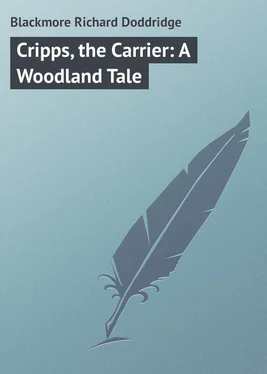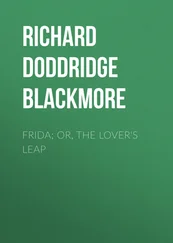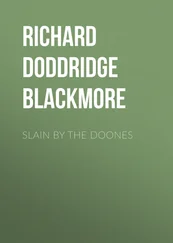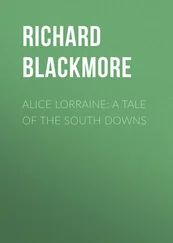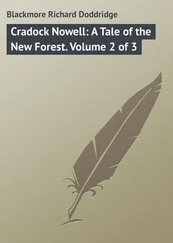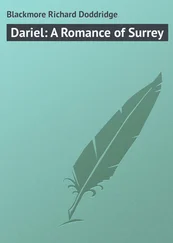Richard Blackmore - Cripps, the Carrier - A Woodland Tale
Здесь есть возможность читать онлайн «Richard Blackmore - Cripps, the Carrier - A Woodland Tale» — ознакомительный отрывок электронной книги совершенно бесплатно, а после прочтения отрывка купить полную версию. В некоторых случаях можно слушать аудио, скачать через торрент в формате fb2 и присутствует краткое содержание. ISBN: , Жанр: foreign_prose, на английском языке. Описание произведения, (предисловие) а так же отзывы посетителей доступны на портале библиотеки ЛибКат.
- Название:Cripps, the Carrier: A Woodland Tale
- Автор:
- Жанр:
- Год:неизвестен
- ISBN:http://www.gutenberg.org/ebooks/43281
- Рейтинг книги:4 / 5. Голосов: 1
-
Избранное:Добавить в избранное
- Отзывы:
-
Ваша оценка:
- 80
- 1
- 2
- 3
- 4
- 5
Cripps, the Carrier: A Woodland Tale: краткое содержание, описание и аннотация
Предлагаем к чтению аннотацию, описание, краткое содержание или предисловие (зависит от того, что написал сам автор книги «Cripps, the Carrier: A Woodland Tale»). Если вы не нашли необходимую информацию о книге — напишите в комментариях, мы постараемся отыскать её.
Cripps, the Carrier: A Woodland Tale — читать онлайн ознакомительный отрывок
Ниже представлен текст книги, разбитый по страницам. Система сохранения места последней прочитанной страницы, позволяет с удобством читать онлайн бесплатно книгу «Cripps, the Carrier: A Woodland Tale», без необходимости каждый раз заново искать на чём Вы остановились. Поставьте закладку, и сможете в любой момент перейти на страницу, на которой закончили чтение.
Интервал:
Закладка:
"'Barbarous creatures!' she said, 'you will have to hold another inquest, if you are so unmanly. I could not even see my dear husband,' and then she fell into hysterics, and we had to send two miles for brandy. Now, sir, have we anything more to do? Shall we send a litter or a coffin for the Squire himself?"
"You are inclined to be sarcastic. But you have taken a great deal upon yourself. You seem to have ordered everything. Mr. Luke Sharp everywhere!"
"Will you tell me who else there was to do it? It has not been a very pleasant task, and certainly not a profitable one. I shall reap the usual reward – to be called a busybody by every one. But that is a trifle. Now, if there is anything you can suggest, Mr. Overshute, it shall be done at once. Take time to think. I feel a little tired and in need of rest. There has been so much to think of. You should have come to help us sooner. But, no doubt, you felt a sort of delicacy about it. The worthy jurymen's feet at last have ceased to rattle in the passage. My horse will not be here just yet. You will not think me rude, if I snatch a little rest, while you consider. For three nights I have had no sleep. Have I your good permission, sir? Here is the key of that room, meanwhile."
Russel Overshute was surprised to see Mr. Sharp draw forth a large silk handkerchief, with spots of white upon a yellow ground, and spread it carefully over the crown of his long, deep head, and around his temples down to the fine grey eyebrows. Then lifting gaitered heels upon the flat wide bar of the iron fender – the weather being as cold as ever – in less than a minute Mr. Luke Sharp was asleep beyond all contradiction. He slept the sleep of the just, with that gentle whisper of a snore which Aristotle hints at to prove that virtue being, as she must be, in the mean, doth in the neutral third of life maintain a middle course between loud snore and silent slumber.
If Mr. Sharp had striven hard to produce a powerful effect, young Overshute might have suspected him; but this calm, good sleep and pure sense of rest laid him open for all the world to take a larger view of him. No bad man could sleep like that. No narrow-minded man could be so wide to nature's noblest power. Only a fine and genial soul could sweetly thus resign itself. The soft content of well-earned repose spoke volumes in calm silence. Here was a good man (if ever there was one), at peace with his conscience, the world, and heaven!
Overshute was enabled thus to look at things more loftily; – to judge a man as he should be judged, when he challenges no verdict; – to see that there are large points of view, which we lose by worldly wisdom, and by little peeps through selfish holes, too one-eyed and ungenerous. Overshute could not bear the idea of any illiberality. He hated suspicion in anybody, unless it were just; as his own should be. In this condition of mind he pondered, while the honest lawyer slept. And he could not think of anything neglected, or mismanaged much, in the present helpless state of things.
CHAPTER XV.
A SPOTTED DOG
When at last the frost broke up, and streams began to run again, and everywhere the earth was glad that men should see her face once more; and forest-trees, and roadside pollards, and bushes of the common hedgerow, straightened their unburdened backs, and stood for spring to look at them; a beautiful young maiden came as far as she could come, and sighed; as if the beauty of the land awaking was a grief to her.
This pretty lady, in the young moss-bud, and slender-necked chalice of innocence, was laden with dews of sorrow, such as nature, in her outer dealings with the more material world, defers until autumnal night and russet hours are waiting. Scarcely in full bloom of youth, but ripe for blush or dreaminess, she felt the power of early spring, and the budding hope around her.
"Am I to be a prisoner always, ever more a prisoner?" she said, as she touched a willow catkin, the earliest of all, the silver one. She stroked the delicate silken tassel, doubtful of its prudence yet; and she looked for leaves, but none there were, and nothing to hold commune.
The feeble sun seemed well content to have a mere glimpse of the earth again, and spread his glances diffidently, as if he expected shadow. Nevertheless, there he was at last; and the world received him tenderly.
"It has been such a long, long time. It seems to grow longer, as the days draw out, and nobody comes to talk to me. My place it is to obey, of course – but still, but still – there he is again!"
The girl drew back; for a fine young man, in a grand new velvet shooting-coat, wearing also a long shawl waistcoat and good buck-skin breeches, which (combined with calf-skin gaiters) set off his legs to the uttermost, – in all this picturesque apparel, and swinging a gun right gallantly, there he was, and no mistake! He was quietly trying through the covert, without any beaters, but with a brace of clever spaniels, for woodcock, snipe, or rabbit perhaps; the season for game being over. A tall, well-made, and rather nice young man (so far as a bashful girl might guess) he seemed at this third view of him; and of course it would be an exceedingly rude and pointed thing to run away. Needless, also, and indeed absurd; because she was sure that when last they met, he was frightened much more than she was. It was nothing less than a duty now, to find out whether he had recovered himself. If he had done so, it would be as well to frighten him even more this time. And if he had not, it would only be fair to see what could be done for him.
One of his dogs – a "cocking spannel," as the great Mr. Looker warranted – a good young bitch, with liver-coloured spots, and drop ears torn by brambles, and eyes full of brownish yellow light, ran up to the girl confidentially, and wagged a brief tail, and sniffed a little, and with sound discretion gazed. Each black nostril was like a mark of panting interrogation, and one ear was tucked up like a small tunnel, and the eye that belonged to it blinked with acumen.
"You pretty dear, come and let me pat you," the young lady cried, looking down at the dog, as if there were nobody else in the world. "Oh, I am so fond of dogs – what is your name? Come and tell me, darling."
"Her name is 'Grace,'" said the master, advancing in a bashful but not clumsy way. "The most beautiful name in the world, I think."
"Oh, do you think so, Mr. – but I beg your pardon, you have not told me what your own name is, I think."
"I hope you are quite well," he answered, turning his gun away carefully; "quite well this fine afternoon. How beautiful it is to see the sun, and all the things coming back again so!"
"Oh yes! and the lovely willow-trees! I never noticed them so before. I had no idea that they did all this." She was stroking the flossiness as she spoke.
"Neither had I," said the young man, trying to be most agreeable, and glancing shyly at the haze of silver in lily fingers glistening; "but do not you think that they do it because – because they can scarcely help themselves?"
"No! how can you be so stupid? Excuse me – I did not mean that, I am sure. But they do it because it is their nature; and they like to do it."
"You know them, no doubt; and you understand them, because you are like them."
He was frightened as soon as he had said this; which he thought (while he uttered it) rather good.
"I am really astonished," the fair maid said, with the gleam of a smile in her lively eyes, but her bright lips very steadfast, "to be compared to a willow-tree. I thought that a willow meant – but never mind, I am glad to be like a willow."
"Oh no! oh no! You are not one bit – I am sure you will never be like a willow. What could I have been thinking of?"
"No harm whatever, I am sure of that," she answered, with so sweet a look, that he stopped from scraping the toe of his boot on a clump of moss; and in his heart was wholly taken up with her – "I am sure that you meant to be very polite."
Читать дальшеИнтервал:
Закладка:
Похожие книги на «Cripps, the Carrier: A Woodland Tale»
Представляем Вашему вниманию похожие книги на «Cripps, the Carrier: A Woodland Tale» списком для выбора. Мы отобрали схожую по названию и смыслу литературу в надежде предоставить читателям больше вариантов отыскать новые, интересные, ещё непрочитанные произведения.
Обсуждение, отзывы о книге «Cripps, the Carrier: A Woodland Tale» и просто собственные мнения читателей. Оставьте ваши комментарии, напишите, что Вы думаете о произведении, его смысле или главных героях. Укажите что конкретно понравилось, а что нет, и почему Вы так считаете.
